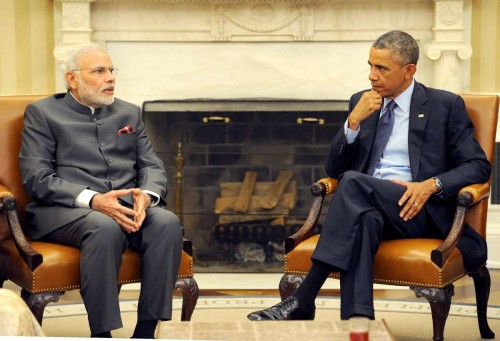
As US President Barack Obama prepares to attend the ASEAN and East Asia Summit next week in Myanmar, a leading US strategic expert feels that if the Obama government is serious about its “rebalance to Asia” then it should take advantage of the convergence between what the US would want to achieve and India’s own objectives in the region.
Af-Pak expert Michael Kugelman feels that analysts, including in Washington, have always taken the US’ Asia rebalance policy “with a grain of salt” as there has not been much to follow up in terms of concrete action by the Obama administration.
“If the rebalance is to go ahead, there is a lot of convergence between what the US would want to get out of the pivot to Asia and what India’s own aims and objectives are in Asia,” Kugelman told IANS in a chat.
Kugelman, South Asia associate at the Woodrow Wilson International Center for Scholars, said there is far too much happening elsewhere, including the Middle East, that keeps diverting the US attention from Asia Pacific. “The US rebalance will be focused on Pacific Asia and Southeast Asia, deepening relationships. India has also been focusing in that part of the region”.
He said that the “US wants India to play more of a stabilizing role in Asia” and “would like to see India doing more in terms of maritime security, essentially to play a role in the region that sort of balances out what China has already been doing.”
“I won’t say the US sees India as a substitute for the US in the region; far from it. But it sees India as a country that has the potential to play a deeper role in Asia, which given the US’ own desire to play a deeper role, will complement each other very well,” he added. Prime Minister Narendra Modi is also to attend the Nov 11-12 ASEAN and EAS summits in Nay Pyi Taw, Myanmar.
On Prime Minister Modi’s US visit, Kugelman said the US government is “happy with the visit for the simple reason that it happened, given the troubled history between Modi and the US government”,
He said the US government was “not really looking for major milestone achievements or milestone takeaways from the visit, but to amplify an interest in India’s part to get the relationship back on track, and I think it got that”.
Within the American think tank community, he said, they “saw the meeting as successful for the reason that it happened.. and they feel it should not be overstated”. Despite the new momentum in ties, he said it remains, in his view, a “troubled relationship” with “hang-ups” persisting over issues like the nuclear liability law, intellectual property rights and WTO.
“Strategic relationship means high level of trust; so long as differences are there and unresolved despite efforts, in my view it will be difficult to have a healthy strategic relationship,” Kugelman added.
He said that America was reaching a point in its political system where nothing is slated to happen for the next few months with the Congress out of session and mid term elections due.
“We may have to wait till 2015 to see what happens to the (India-US) relationship,” he said.
On the US-led fight against the Islamic State, he says that while the US would have liked India to join the coalition, “but Washington is wise enough to realise that it will be an unrealistic hope, and India is not going to join the coalition; and the US is resigned to that and will accept what it is getting from India” in terms of moral support and intelligence coordination.